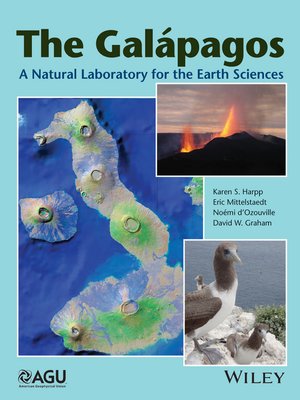The Galapagos
ebook ∣ A Natural Laboratory for the Earth Sciences · Geophysical Monograph
By Karen S. Harpp

Sign up to save your library
With an OverDrive account, you can save your favorite libraries for at-a-glance information about availability. Find out more about OverDrive accounts.
Find this title in Libby, the library reading app by OverDrive.



Search for a digital library with this title
Title found at these libraries:
| Library Name | Distance |
|---|---|
| Loading... |
The Galápagos Islands are renown for their unique flora and fauna, inspiring Charles Darwin in the elaboration of his theory of evolution. Yet in his Voyage of the Beagle, published in 1839, Darwin also remarked on the fascinating geology and volcanic origin of these enchanted Islands. Since then, the Galápagos continue to provide scientists with inspiration and invaluable information about ocean island formation and evolution, mantle plumes, and the deep Earth.
Motivated by an interdisciplinary Chapman Conference held in the Islands, this AGU volume provides cross-disciplinary collection of recent research into the origin and nature of ocean islands, from their deepest roots in Earth's mantle, to volcanism, surface processes, and the interface between geology and biodiversity.
Volume highlights include:
Collectively, The Galápagos presents case studies illustrating the Galápagos Archipelago as a dynamic natural laboratory for the earth sciences. This book would be of special interest to a multidisciplinary audience in earth sciences, including petrologists, volcanologists, geochronologists, geochemists, and geobiologists.







